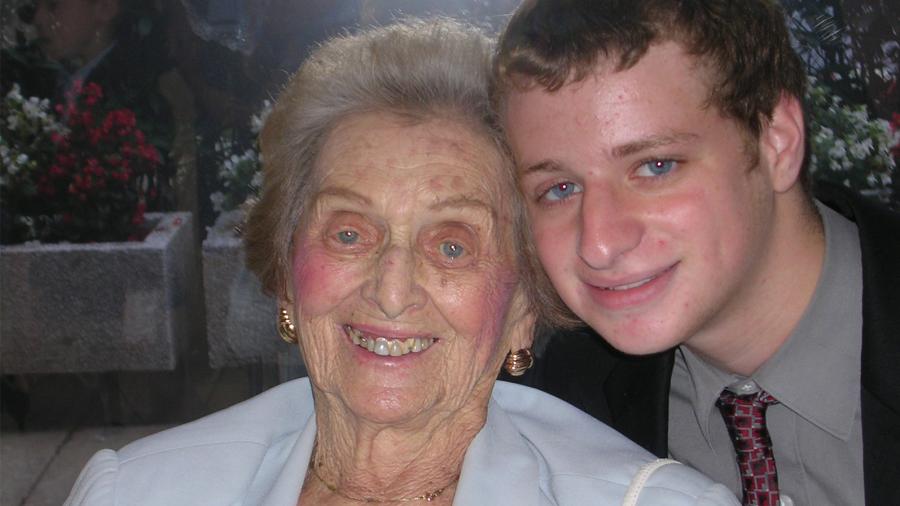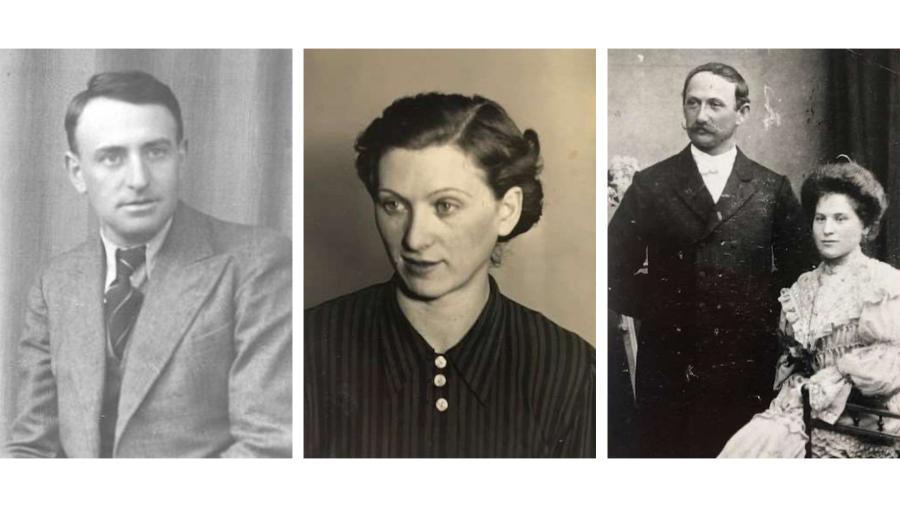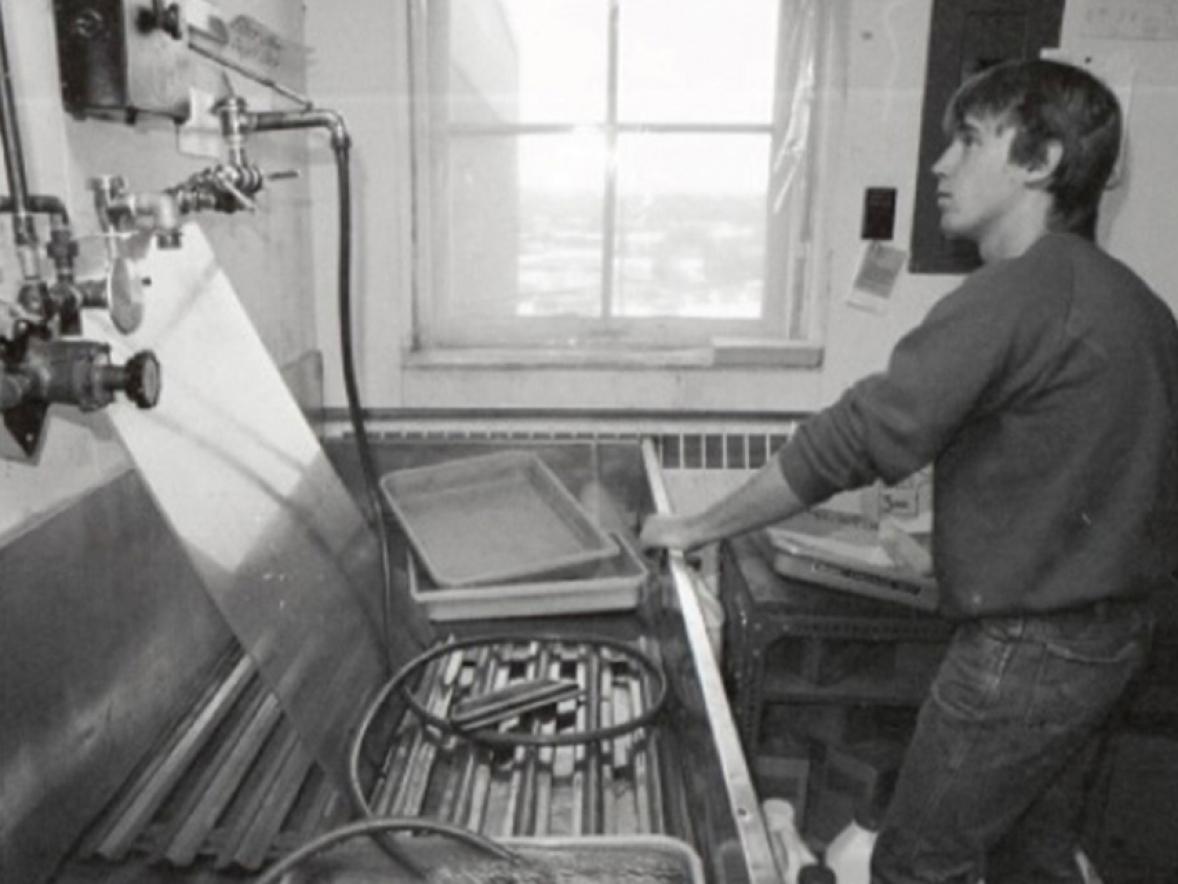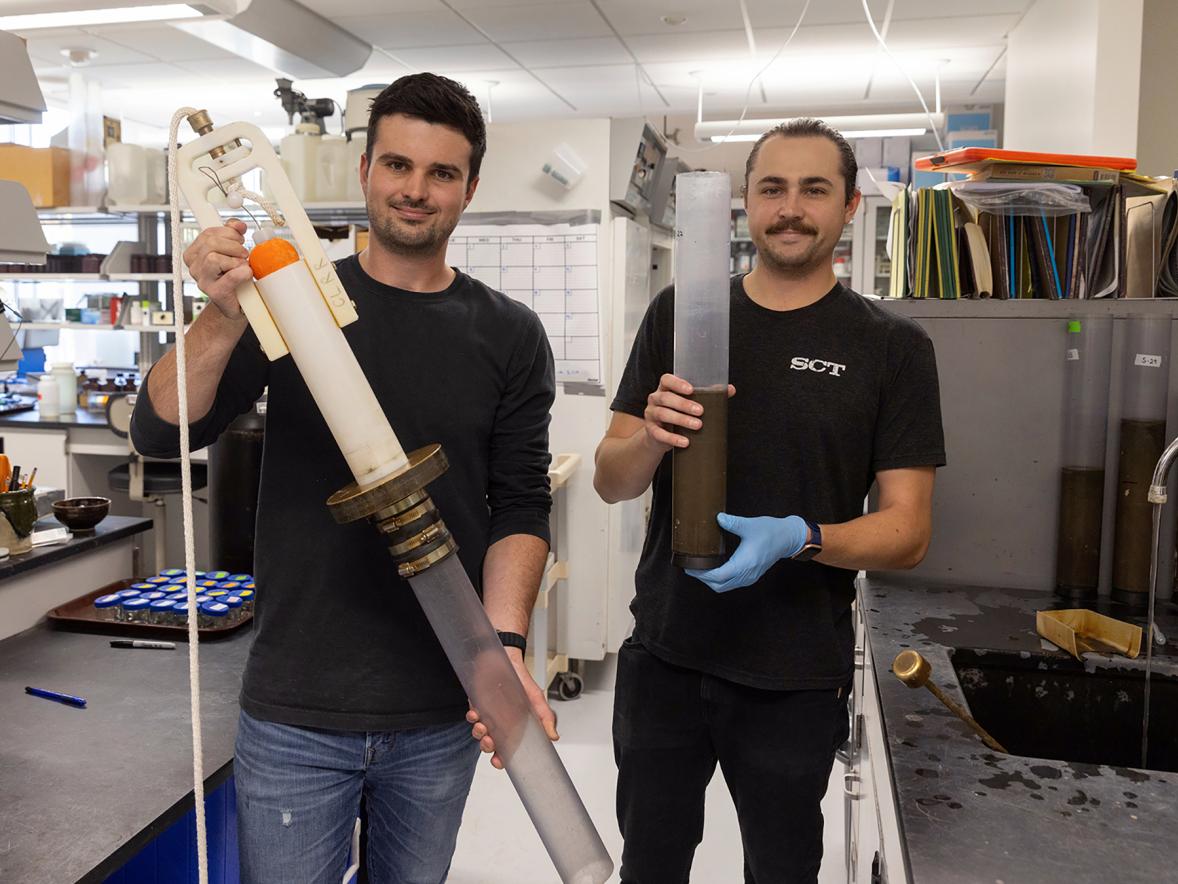Kristallnacht, Night of Broken Glass, occurred on Nov. 9, 1938, a night of violence and destruction instigated by Nazi leaders against the Jewish population in Germany prior to World War II.
In remembrance, Jacob Hellman, a third-generation Holocaust survivor, will share his family’s story of Kristallnacht during Kristallnacht Memorial Night.
The event will be held at UW-Stout from 6 to 7:30 p.m. on Wednesday, Nov. 9, in the Memorial Student Center Great Hall. Doors will open at 5:45 p.m. The event is free and open to the public.
There will also be an opportunity for attendees to reflect through conversation and an interactive artistic activity to commemorate the Night of Broken Glass. Light refreshments will be available.

Hellman is a lecturer and professor of public speaking in UW-Stout’s English, philosophy and communication studies department.
The Hellmann family’s story
Hellman's grandparents Richard and Betty Hellmann – Jacob’s father, Stanley, changed his name to Hellman – often shared their experiences during Kristallnacht, of the violence they witnessed as they fled their home and of their journey to the United States.
As Hellman continues to share their experiences, he wants to positively contribute to the culture of social justice and believes “we need to combat messages of hate.
“We need to remember our roots as humans,” he said. “In our lifetime, the Holocaust will pass out of living memory. We need to preserve the memory and as a human society need to keep it alive, or we are doomed to repeat it.”

For six centuries, Hellman’s grandfather’s family had lived in Gunzenhausen, a Bavarian town of about 16,000 people, 35 miles southwest of Nuremberg, Germany. Then, in the mid-1930s, tens of thousands of Jews emigrated from Germany for fear of persecution, including Hellman’s family.
However, before they were able to leave Germany, the Hellmanns were witness to Kristallnacht. As their home was ransacked, the Hellmanns fled in the dark of night with nothing but the clothes on their back, while Jewish homes, businesses and synagogues all over Germany were vandalized and set on fire.
The Hellmanns drove to different cities across Bavaria, seeking refuge with friends and family, eventually finding shelter in Nuremburg. It was not until the following September that they were able to secure tickets on a train to Antwerp, Belgium.
From there, aboard the Veendam, a ship of the Holland-American line, the family arrived in Hoboken, N.J., on Nov. 9, 1939, on the one-year anniversary of Kristallnacht.
“My family’s story enriches UW-Stout’s story,” Hellman said. “I want to spread a message of tolerance to everyone and add to our university’s tapestry and diverse community.”
For a complete story, visit Stanley Hellman’s article, “Kristallnacht: a Family’s Saga,” published in WhereWhatWhen.com.






